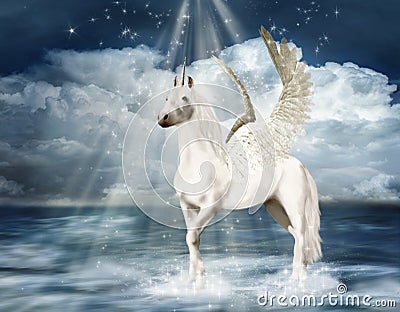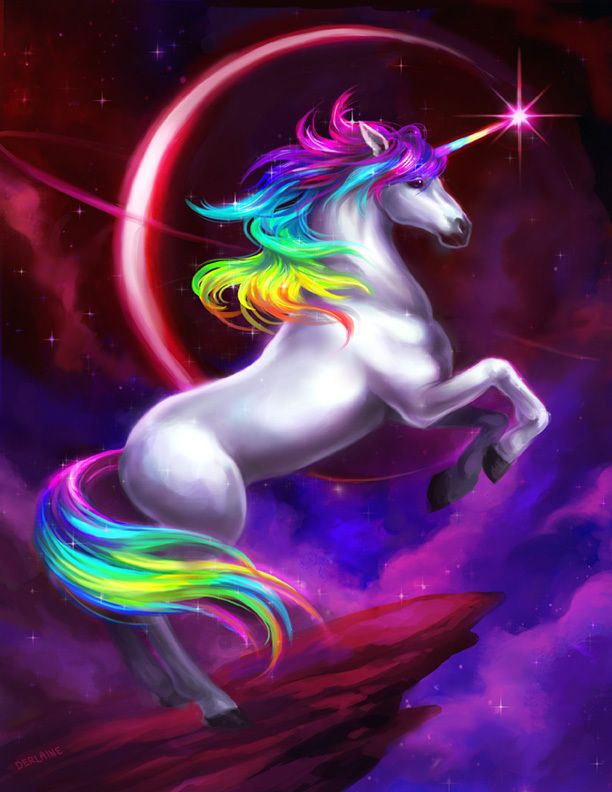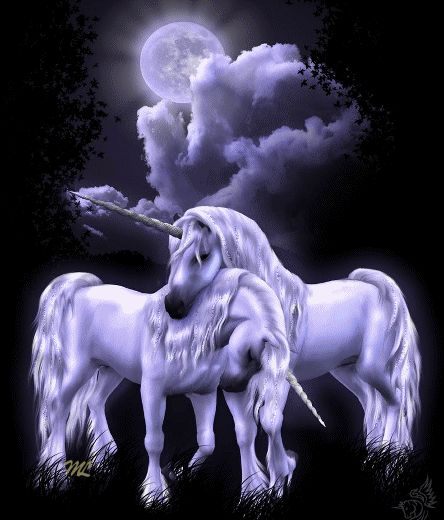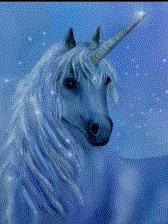Ponee....for all that she does here and more so on DDD. Also for becoming a good virtual friend....This threads for you Ponee....love ya!
Some people claim the Bible is a book of fairy tales because it mentions unicorns. However, the biblical unicorn was a real animal, not an imaginary creature. The Bible refers to the unicorn in the context of familiar animals, such as peacocks, lambs, lions, bullocks, goats, donkeys, horses, dogs, eagles, and calves (Job 39:9–12.1) In Job 38–41, God reminded Job of the characteristics of a variety of impressive animals He had created, showing Job that God was far above man in power and strength.2
Job had to be familiar with the animals on God’s list for the illustration to be effective. God points out in Job 39:9–12 that the unicorn, “whose strength is great,” is useless for agricultural work, refusing to serve man or “harrow (plow) the valley.” This visual aid gave Job a glimpse of God’s greatness. An imaginary fantasy animal would have defeated the purpose of God’s illustration.
The Bible describes unicorns skipping like calves (Psalm 29:6), traveling like bullocks, and bleeding when they die (Isaiah 34:7). The presence of a very strong horn on this powerful, independent-minded creature is intended to make readers think of strength.
The importance of the biblical unicorn is not so much its specific identity—much as we would like to know—but its reality. The Bible is clearly describing a real animal. The unicorn mentioned in the Bible was a powerful animal possessing one or two strong horns—not the fantasy animal that has been popularized in movies and books. Whatever it was, it is now likely extinct like many other animals. To think of the biblical unicorn as a fantasy animal is to demean God’s Word, which is true in every detail.
Some people claim the Bible is a book of fairy tales because it mentions unicorns. However, the biblical unicorn was a real animal, not an imaginary creature. The Bible refers to the unicorn in the context of familiar animals, such as peacocks, lambs, lions, bullocks, goats, donkeys, horses, dogs, eagles, and calves (Job 39:9–12.1) In Job 38–41, God reminded Job of the characteristics of a variety of impressive animals He had created, showing Job that God was far above man in power and strength.2
Job had to be familiar with the animals on God’s list for the illustration to be effective. God points out in Job 39:9–12 that the unicorn, “whose strength is great,” is useless for agricultural work, refusing to serve man or “harrow (plow) the valley.” This visual aid gave Job a glimpse of God’s greatness. An imaginary fantasy animal would have defeated the purpose of God’s illustration.
The Bible describes unicorns skipping like calves (Psalm 29:6), traveling like bullocks, and bleeding when they die (Isaiah 34:7). The presence of a very strong horn on this powerful, independent-minded creature is intended to make readers think of strength.
The importance of the biblical unicorn is not so much its specific identity—much as we would like to know—but its reality. The Bible is clearly describing a real animal. The unicorn mentioned in the Bible was a powerful animal possessing one or two strong horns—not the fantasy animal that has been popularized in movies and books. Whatever it was, it is now likely extinct like many other animals. To think of the biblical unicorn as a fantasy animal is to demean God’s Word, which is true in every detail.






 Sat Mar 23, 2024 11:33 pm by globalturbo
Sat Mar 23, 2024 11:33 pm by globalturbo



















 :fire works:
:fire works: 





